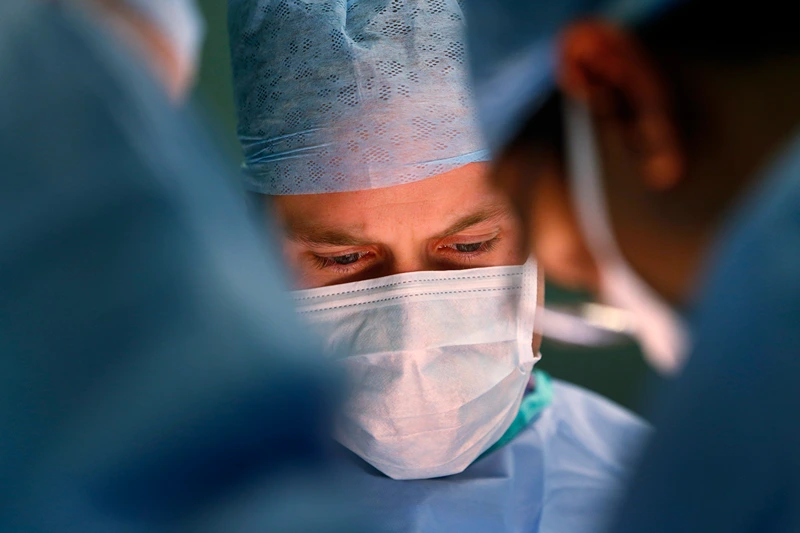

OAN’s Abril Elfi
12:08 PM – Monday, January 29, 2024
A research study suggests that Alzheimer’s can be spread between humans through a rare medical accident.
Advertisement
Research suggests that the disease can be spread through a medical accident, however researchers have stressed that there is no evidence of it spreading through everyday activities.
The study states that an abnormal buildup of the protein amyloid beta in the brain is associated with Alzheimer’s. The contamination of the protein may have a connection with the early dementia symptoms experienced by the patients in the study.
John Collinge, the lead author of the study and director of the University College London Institute of Prion Diseases, spoke in a news briefing about the findings of the study.
“I should emphasize these are very rare occurrences, and the majority of this relates to medical procedures that are no longer used,” Collinge stated.
The study stated that each of the five adults suffered from a growth hormone deficiency as children and were given specially prepared pituitary growth hormones derived from cadavers. The pituitary gland is situated at the base of the brain. It naturally produces and releases human growth hormone, or HGH, which aids in a child’s growth.
According to the study, these patients were among the 1,848 individuals in the UK who received treatment with human growth hormone extracted from the pituitary gland of a cadaver between 1959 and 1985. At the time, the United States and other countries around the world also used this treatment.
After cases of Creutzfeldt-Jakob disease, a rare brain disorder, were linked to the use of tainted human growth hormone from cadavers, the treatment strategy was discontinued.
According to the recent study, Alzheimer’s disease may be spread through repeated exposure over a period of years to cadaver-derived HGH treatments tainted by amyloid beta seeds and prions linked to Creutzfeldt-Jakob disease. Proteins known as prions have the ability to spread neurodegenerative illnesses.
The researchers said that Alzheimer’s may be transmitted in certain circumstances in a way similar to conditions known as “prion diseases” which is a family of rare progressive neurodegenerative disorders known to be associated with prion proteins, including Creutzfeldt–Jakob disease.
“It looks like what’s going on in Alzheimer’s disease is very similar in many respects to what happens in the human prion diseases like CJD,” Collinge said in the news briefing. “It does raise implications about therapeutic approaches to Alzheimer’s disease.”
In an email, Dr. Richard Isaacson, who was not involved in the new study, stated that while previous research he has seen has not been able to prove it, he has long suspected that Alzheimer’s disease may have some transmissibility similar to prion diseases.
“While it’s hard to say, there must be something different about how HGH may have infected recipients in this study when compared to prior work,” said Isaacson.
Although the study stresses the significance of sterilizing and decontaminating instruments in between surgeries, he continued, saying that “the public has nothing to fear” because this form of human growth hormone treatment is no longer used in clinical practice.
Researchers noted in the study that “its recognition emphasizes the need to review measures to prevent accidental transmissions via other medical and surgical procedures,” even though there is no evidence that amyloid beta can be spread between people during daily activities.
Stay informed! Receive breaking news blasts directly to your inbox for free. Subscribe here. https://www.oann.com/alerts

